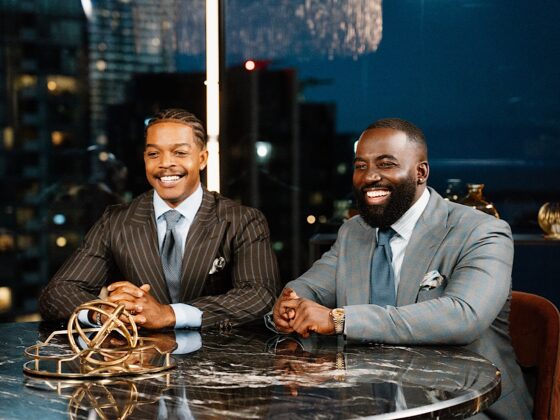With her rich, soulful voice and captivating stage presence, Jully Black has held the undisputed title of “Canada’s Queen of R&B” for decades. More recently, she’s become equally as well-known as a face behind progressive change and healing. As a platinum-selling recording artist, Black has produced multiple chart-topping singles and accumulated Juno and Gemini Awards. No stranger to fellow famous faces, Black has shared the stage with greats like Celine Dion, Etta James, Bon Jovi, and Elton John, and written songs for superstars like Nas and Destiny’s Child. Jully Black’s talents span from the stage to the screen; she’s also an actress and a beloved television correspondent.
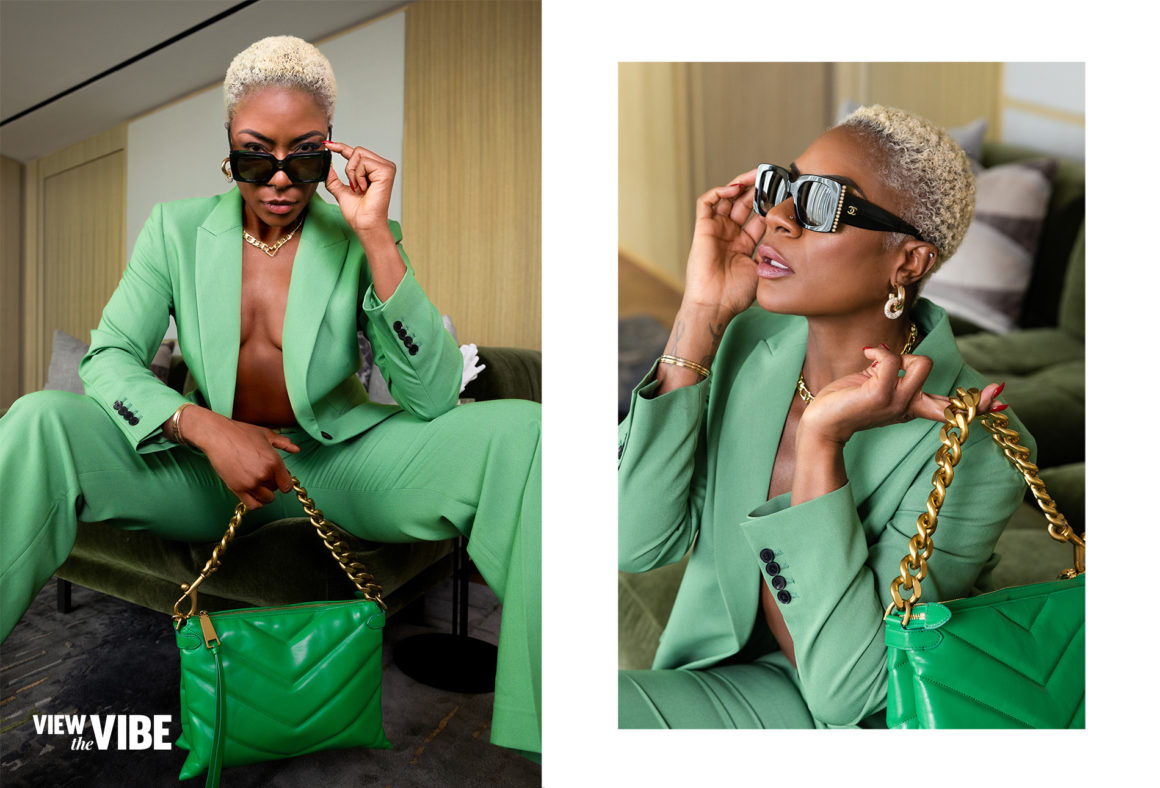
Months after the fall 2022 release of her latest album, Three Rocks and a Slingshot, Black inspired important conversations after she made a subtle but powerful change to Canada’s national anthem during the 2023 NBA All-Star game – and, refreshingly, the country is still talking about it.
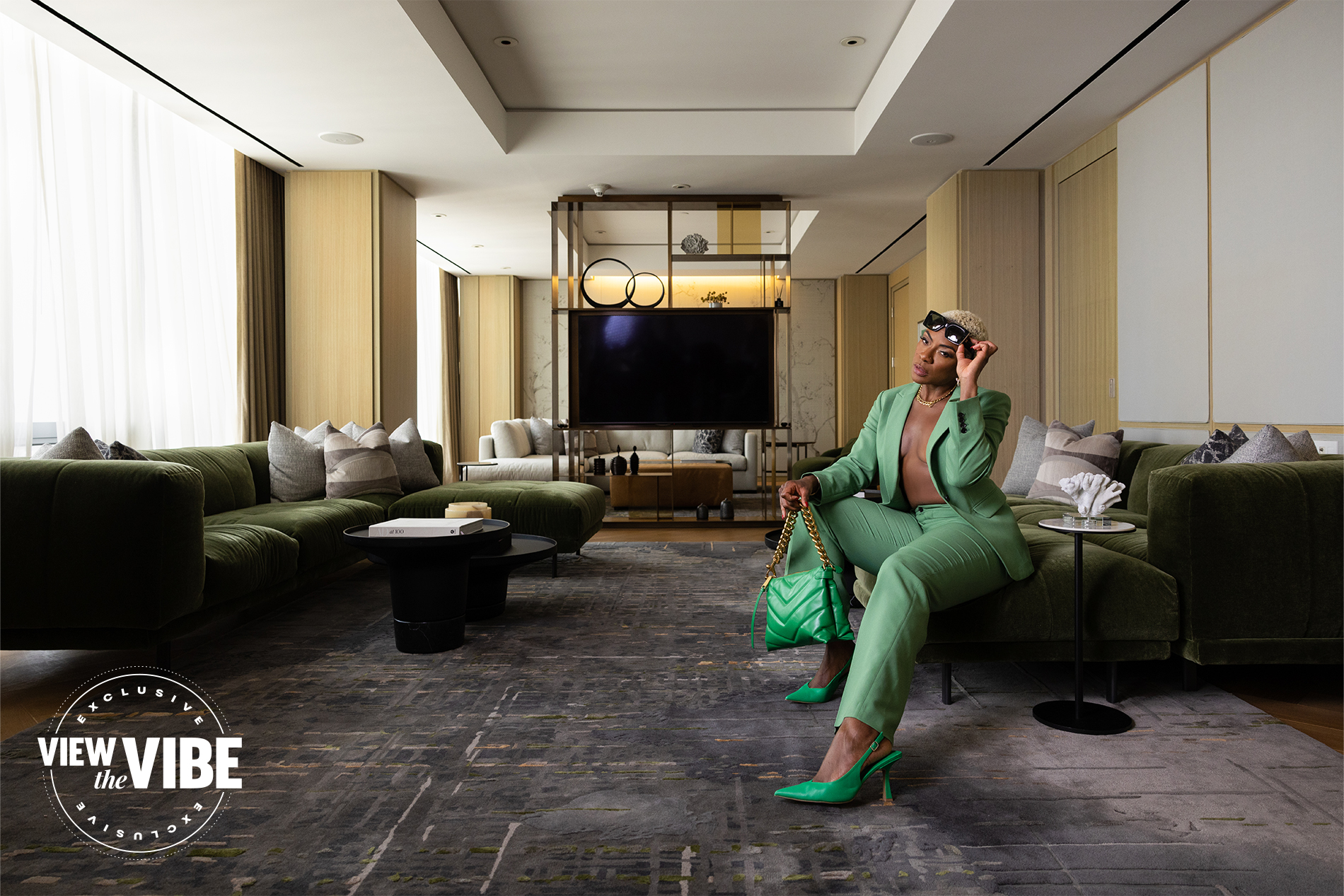
The Early Days: “Like a Spike Lee Movie”
As the baby of a nine-kid family, Black says her childhood was one of the best parts of her life. Growing up in Toronto’s Jane and Finch neighbourhood in the 80s and 90s, she recalls a strong sense of community. “It was a multicultural community with lots of food, which is interesting because people think the Jane and Finch community is all Black people,” says Black. “But the neighbourhood has a high immigration population – it’s wonderful – so it really was a United Colours of Benetton type thing and just felt super safe. My dad would drive all the neighbourhood kids to school, my sister would braid everyone’s hair, and we’d go to friends’ houses to eat after school. It felt like a Spike Lee movie.”
ADVERTISEMENT |
After her parents parted ways when she was 10, Black says her mother held down the household, working for General Motors. “I didn’t feel like I was poor; my mom hid it very well,” recalls Black. “She made sure we were able to buy school Picture Day photos and Scholastic books.” Black also recalls camping trips and summertime visits to Chicago. “It was almost like the sun always shone,” she says. “Even when it was raining.” Black says education was always a priority. “Getting high grades was cool, you know?,” she says. “On any report card, 80s and 90s were a thing, so education has always been an important factor in my life.”
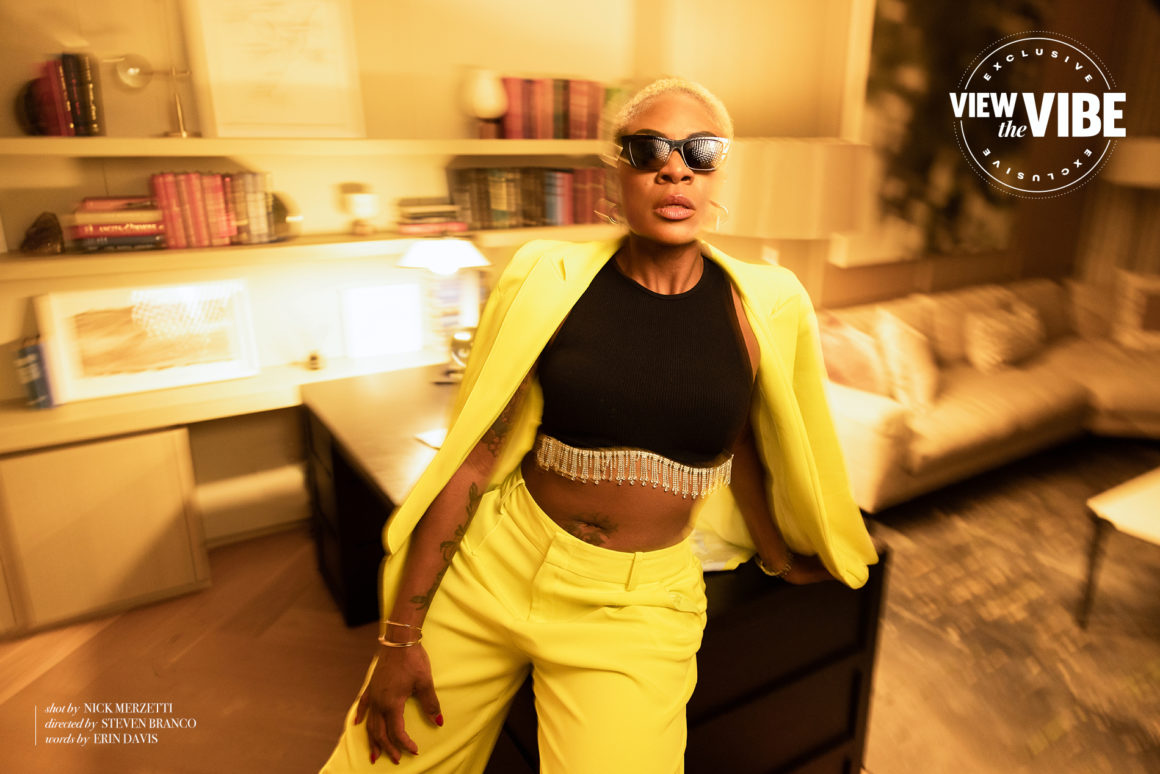
Church also played a central role in Black’s childhood. It was within the walls of a Runnymede church that her talents were first realised once people heard her sing at just six years old. “I knew I could sing well and that maybe I had something special – let’s put it that way,” says Black. “I didn’t know [if it was] good or bad, but I knew that when I did something people responded and it felt good.” It didn’t take long before singing in church transitioned into singing in talent shows, variety shows, and school assemblies – anywhere she could find a stage, Black says, noting that there were more physical platforms to showcase local talent back then.
“There was an amazing organisation called Jones and Jones Productions and I entered their talent show with Luther Brown, who is one of the most credited choreographers in the world right now,” recalls Black of her first time performing for an audience that wasn’t in her church or school. “Getting that response from strangers was cool. In church, you have your friends and family. But now, total strangers went off. I sang ‘Save the Best for Last’ by Vanessa Williams. I was singing acapella and a step team was doing the beat with their feet. It was really such an amazing memory.”

Black scored a record deal at just 14 years old. “That’s a whole other story,” says Black about signing with Sony Records in New York City. “I don’t think we have enough pages in the magazine and characters to tell that story. But I would just keep finding Toronto stages. And it wasn’t always a ‘praise Jully’ show. Sometimes, I’d perform in certain neighbourhoods – you know, Scarborough or Rex – and the crowd would be like, ‘Oh, she’s from Jane and Finch, boo.’ I had to try to drown out the boos. So, it was a journey to build my 10,000 hours. I’m an outlier.”
ADVERTISEMENT |
Despite her budding music career, Black decided to study Police Foundations at Seneca College after high school. It was a move inspired by the racial profiling she and her friends frequently experienced. “After studying the criminal code, I understood exactly what certain vernacular and jargon meant,” says Black. “It really helped and I’d bring it back to the block. I’d tell my friends their legal rights and what to do if they got pulled over. I held that criminal code; I took it everywhere with me like a bible.”

Black studied throughout the summer, fast-tracking in order to focus on her music. That’s not to say her career was on hold while she studied; Black appeared in Canadian rapper Choclair’s track “What it Takes” during her college days, a song that would lead to a Juno Award win for Best Rap Recording in 1997. “I was like, okay, this is fun but there wasn’t there wasn’t an industry for R&B in Canada; hip-hop was the vehicle,” says Black. “And I had the presence of mind to know that if I do all these hooks like I did in Choclair’s song…when people like Kardi [Kardinal Offishall] needed a hook, I raised my hand. And if they didn’t ask, I didn’t raise my hand. But they were all coming for me, like, ‘Jully, we need your voice; we need your tone.’”
From her early days, Jully Black has been compared to American R&B legend Mary J. Blige – something she actually says used to bother her. “But I love Mary, and what I realised is that Mary and Method Man’s ‘You’re All I Need’ was an influence for doing these hooks for these guys,” says Black, “And so it was kind of the beginning of the feature of the R&B hook with the hip-hop verses. So, I did that. It took me on the road; it took me on tour. But I knew I couldn’t just stay. I was bigger than eight bars.”
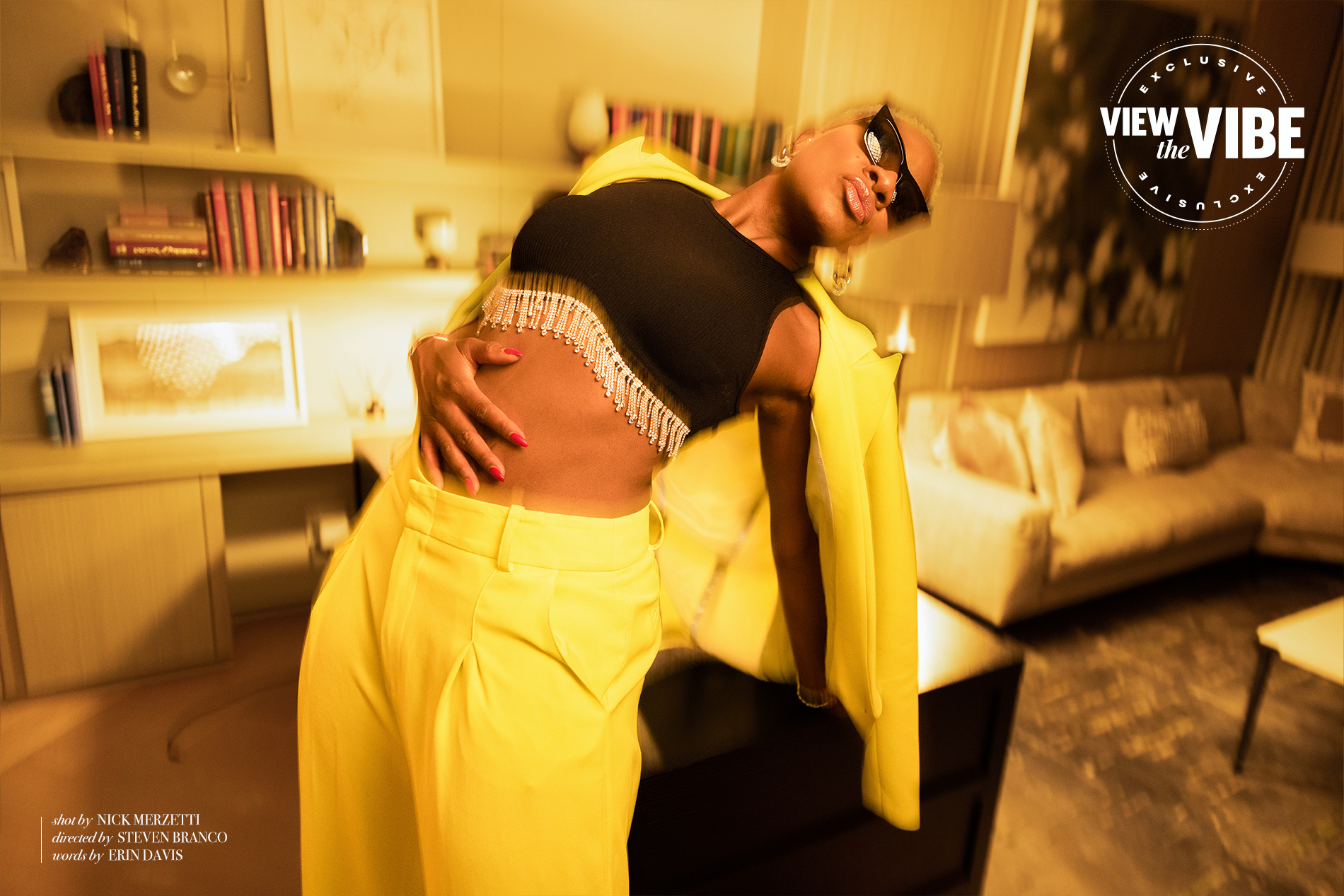
Beyond Eight Bars
The inevitable next step for Black was to put out her own song. Released in 1999, when Black fresh from college graduation, “Rally’n” was produced by local rapper Saukrates, who was also featured in the Canadian Top 40 chart-topping song. “So, we flipped it and I said, ‘You guys are going to be the ones featured now,’” said Black. “Then, I got a Juno nomination for myself and went to the Junos in Hamilton. I was sitting right behind Celine Dion.”
Despite her inevitable talent, like many artists, Black worked random jobs to supplement her career in those early days. “I worked at Royal Bank, the Toronto Reference Library, and at Future Shop,” recalls Black. “I just wanted to make a little money so I could go to the studio. I always wanted to be recording and on the road.” After graduation, Black’s mom told her that she could either be in school or working – but that she needed to figure it out. “Call it divine planning, God blessed me with the opportunity to get a publishing deal from Warner Chappell Music at the time,” she says. “It was also the same year ‘Rally’n’ came out. So, that was that, and I haven’t looked back.”
ADVERTISEMENT |
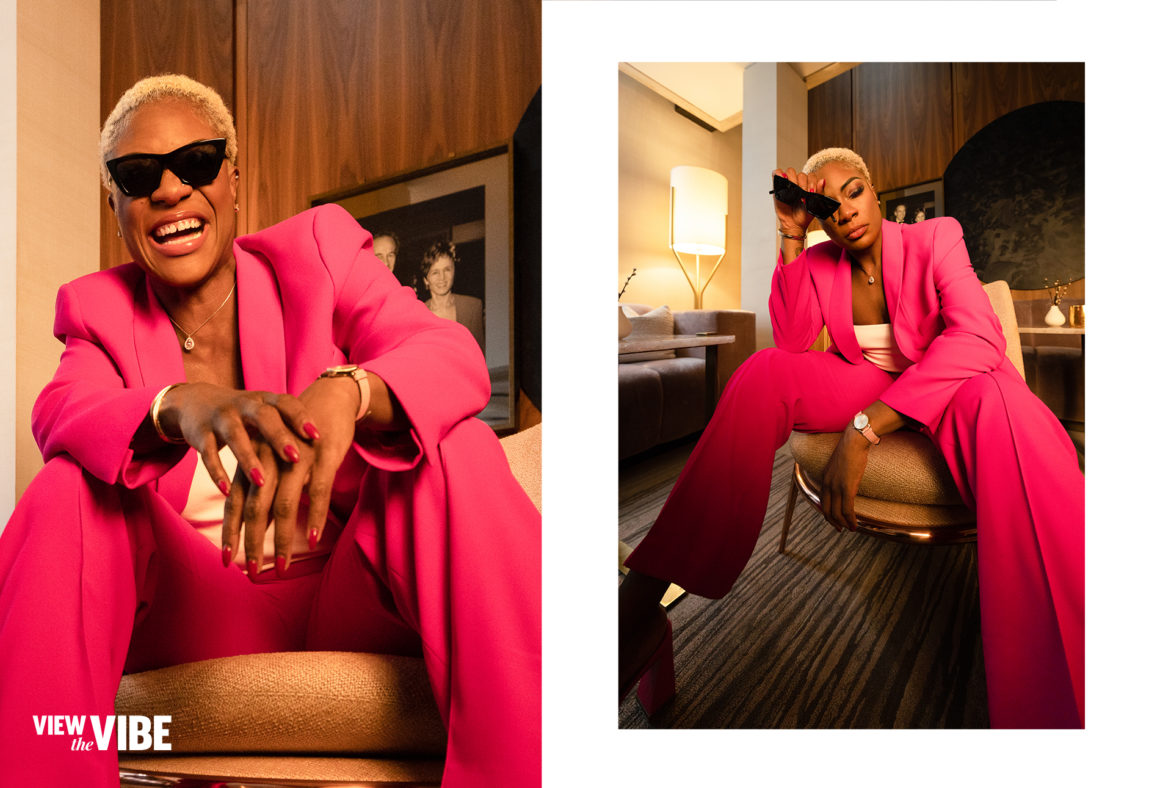
Black signed with Universal Music Canada and released her first album, This Is Me, in 2005. The album included “5x Love/Material Things,” a collaboration with Nas that peaked at Number 30 on the Canadian charts. The single “Sweat of Your Brow” hit number 16. By this point, Black had become a household name from coast to coast. Also in 2005, Black opened for the Black Eyed Peas on their cross-Canada tour – something that would thrust her further into the spotlight. Then, This Is Me, was nominated for the 2006 Juno Award for R&B/Soul Recording of the Year.
Black’s biggest hit to date came in 2007. Released in the summer of that year, “Seven Day Fool” – a song first performed by the late American singer Etta James – is one of Black’s best-known tracks and made it to the Canadian Top 10. The song appears on Black’s second album, Revival, which was released in 2007 and was awarded the Juno Award for R&B/Soul Recording of the Year. Black says that “Seven Day Fool” was actually a dare. “Keith Harris, who is the drummer for the Black Eyed Peas, was a producer on the album,” says Black. “He always heard me sing Etta James’ ‘At Last’ or ‘Fool.’ I’ve always loved Etta James. He said to me, ‘I bet you can’t make this your own.’”
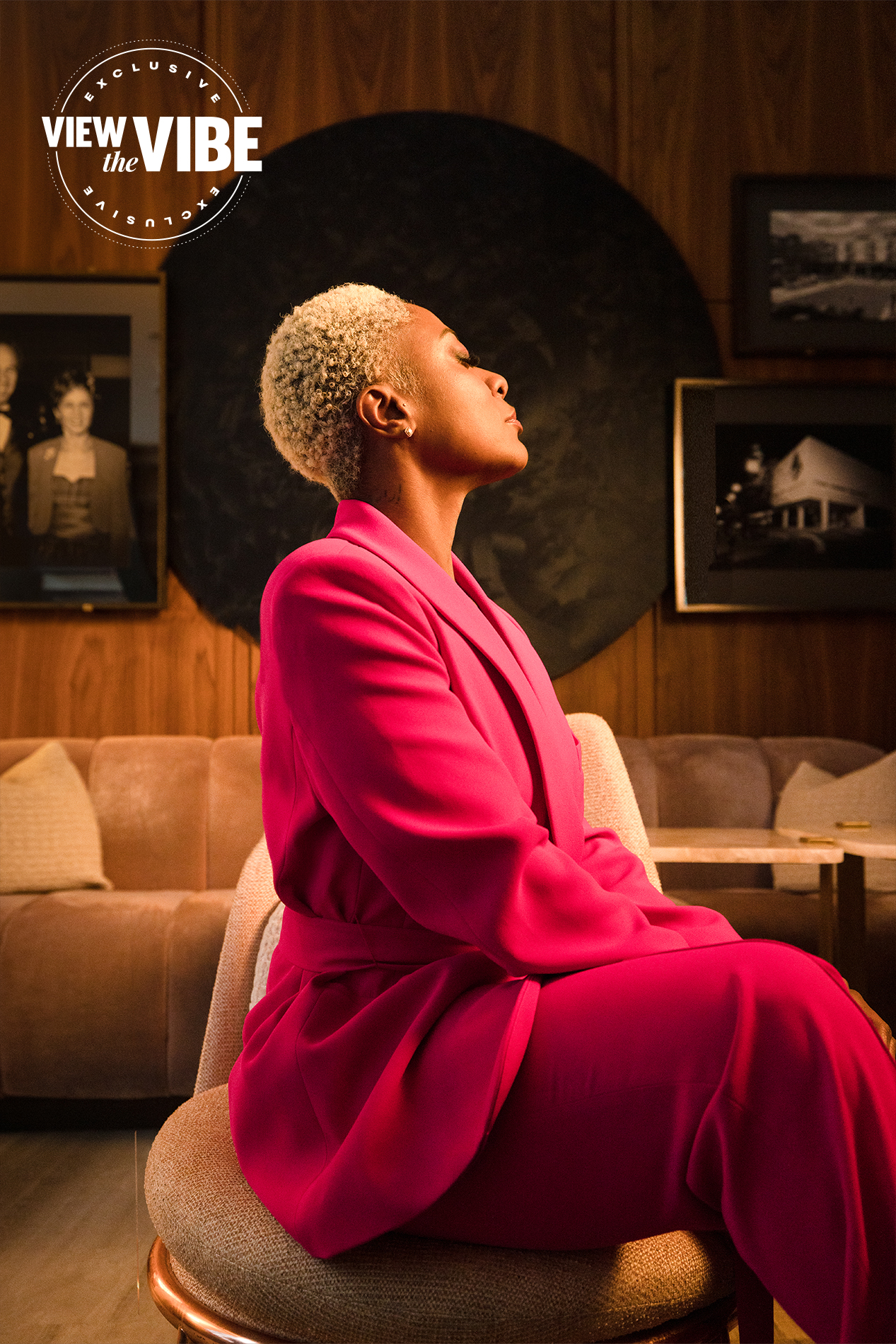
Despite having already completed nine songs in nine days and having virtually lost her voice, Black was up for the challenge. “He was going on the road and we had one more day to finish the album,” recalls Black. “My voice was really, really scratchy. This was the last song he kind of dangled in front of me. I had to dig really deep to get it out of my body. It just happened to be that texture, it hit that energy. So, my message would be to feel the fear and do it anyway. Never limit yourself. You always have more in the tank, always. You always have two more minutes in you.”
ADVERTISEMENT |
She’d soon have another album in there, too. Following the 2009 release of her third studio album, The Black Book, Black kicked off a tour by singing at the 2010 Olympics in Vancouver.
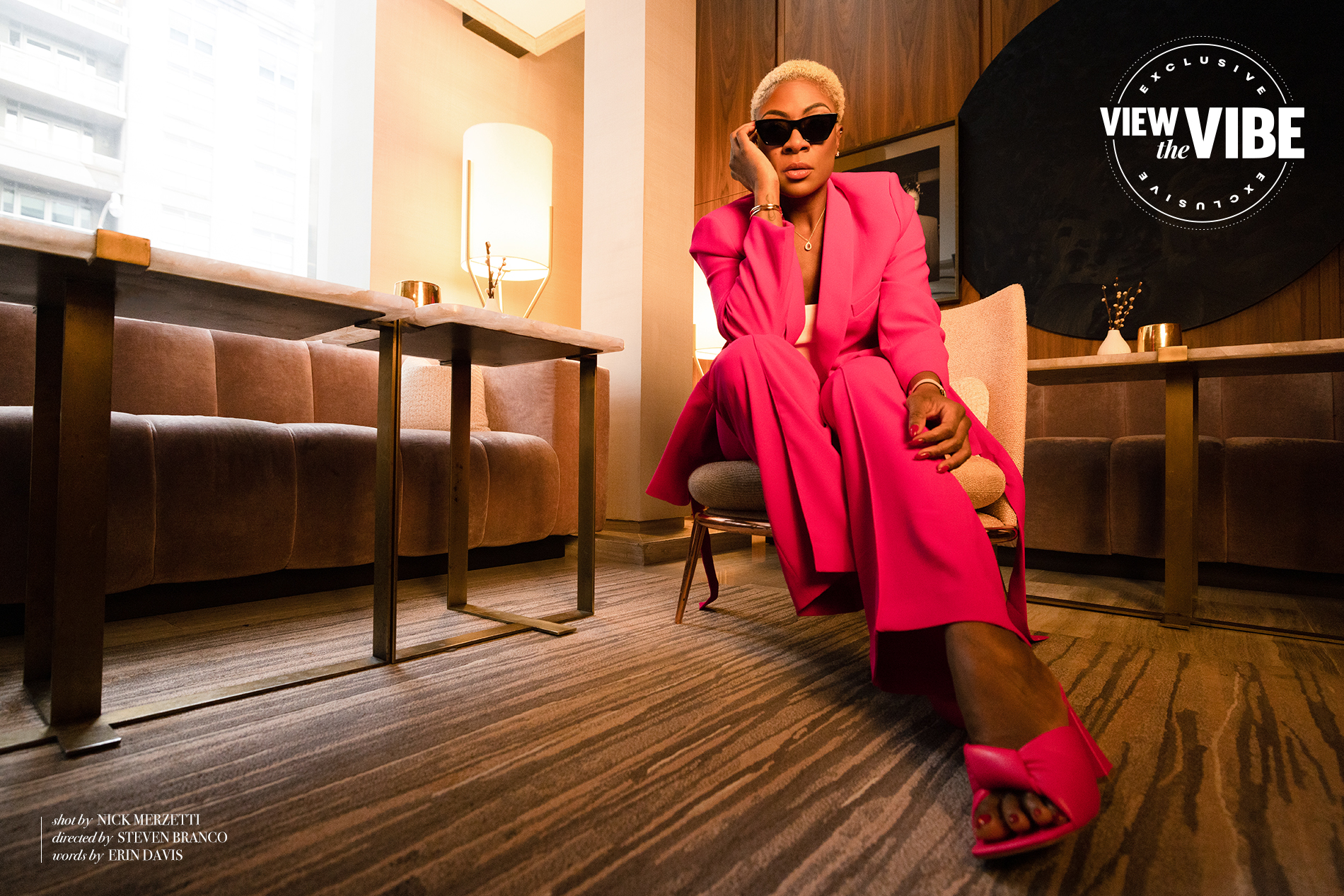
From the Stage to the Screen
Black’s talents span beyond her celebrated singing voice, including some powerful acting chops. In 2005, Black played Raven Dauda Preacher in the sold-out Toronto stage production of trey anthony’s Da Kink in My Hair at the Princess of Wales Theatre, which featured a largely Black cast. “It was a big deal because it was at the Princess of Wales Theatre, which was big for Black theatre,” says Black. “It was the first time it ever happened in Canada.” She later loaned her voice to the theme song of Global TV’s Da Kink in My Hair and appeared in a handful of episodes. Black’s film and TV credits also include a role on the show Soul Food and – most recently – Run the Burbs.
While on tour with the Black Eyed Peas in 2005, Black landed a correspondent role on CTV’s eTalk after she caught the attention of former CTV exec Susanne Boyce in a gifting suite at the Juno Awards months prior. “I was blessed to go on tour with the Black Eyed Peas,” says Black. “And they wanted to send a camera to cover the tour. But they didn’t want to send talent.” So, Boyce brought her in for a meeting.
ADVERTISEMENT |
“I thought, ‘I didn’t go to Ryerson [now Toronto Metropolitan University], I’m not a journalist’– I had all of the limiting beliefs, not to mention, some trauma from being from the neighbourhood and the way it was portrayed in the news,” says Black. “It’s really painful to depict us in a poor light, you know? So, she didn’t send on-air talents on the tour and here I am meeting with her. But she said, ‘I trust how your mother raised you.’ I could cry right now.” Black tears up at the memory. A natural on camera, Black was hired with a salary right away and the role worked within her music schedule. Black held that role until 2010, one that saw her interview names as big as Oprah Winfrey and Bill Clinton.
Black’s TV correspondent credits also include the sixth season of Canadian Idol and hosting the 2008 Canadian Radio Music Awards. She’s also been featured as a weekly guest panellist for The Marilyn Denis Show and most recently appeared at the table with the cast of The Social.
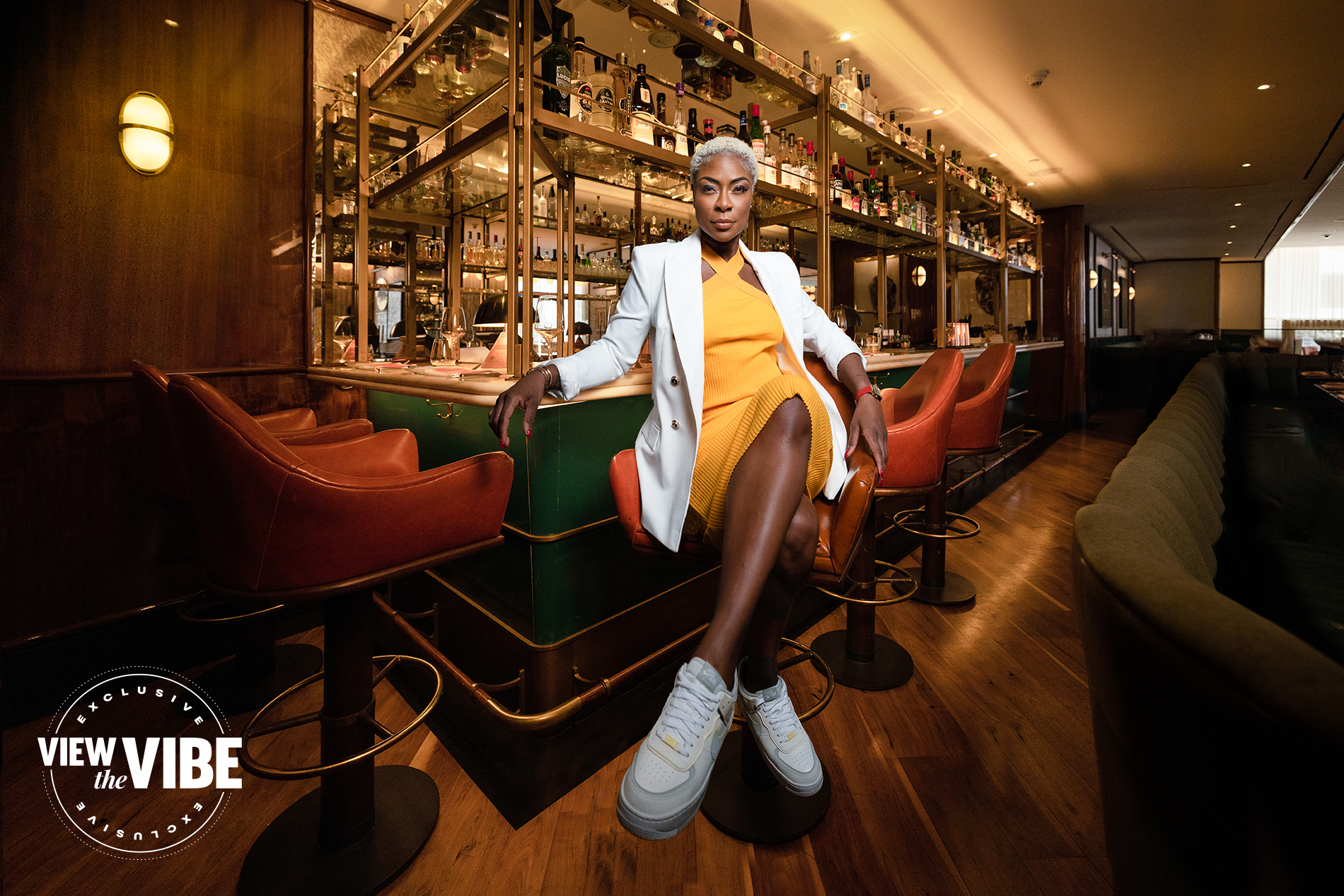
Healing and Changing Lives
Like any career, Jully Black experienced her share of hurdles. Most notably, in 2010 she says she went through a rough patch. “I remember looking at my bank account seeing negative 13-cents and still doing shows,” says Black. “You know, I just couldn’t get out of the financial hole after Universal shelved The Black Book and it was a really screwed up time. I don’t necessarily talk about it often, but it’s now something I can speak about because I don’t have resentment and I’m not bitter. But there was a time when I couldn’t speak about it without really, really being hurt and angry, and seeing how people could really turn their back on you when you’re not a part of that club.”
ADVERTISEMENT |
“I remember looking at my bank account seeing negative 13-cents… and still doing shows,”
Jully Black
Black admits there was a “blackout” in the music side of her public life for a handful of years. The passing of her wisdom-filled mother in 2017 also marked a pivotal time for Jully Black. “After my mom passed away, I realised I had many sides of my voice and I really checked in with myself and said, ‘What side of my voice do I want to use to amplify other voices? Is it my speaking voice? Is it my singing voice? What is it? Is it my presence, because that’s also a voice?,’” says Black.
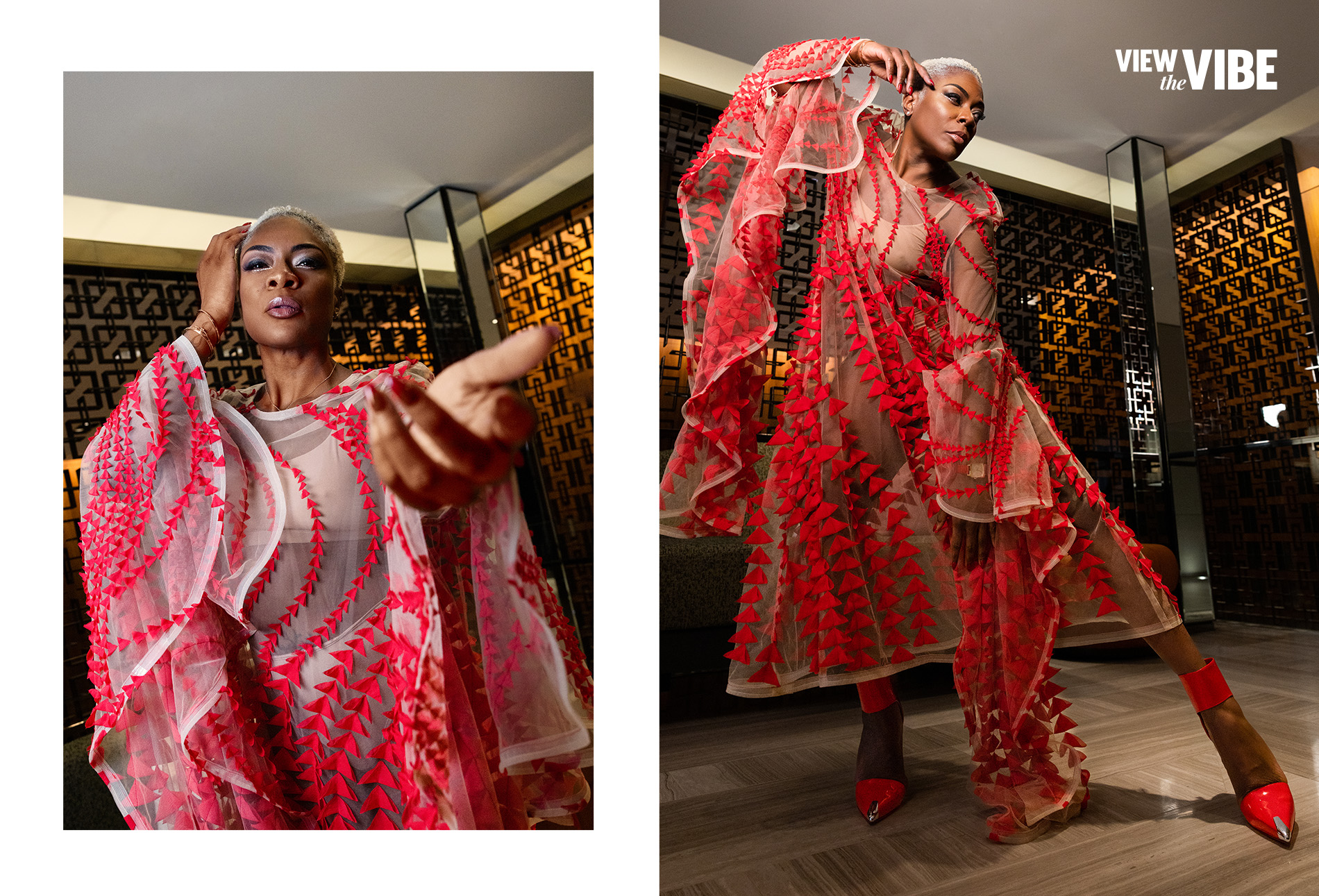
That’s when Black really started to cultivate women’s and girls’ empowerment. She says her companies – health and wellness community 100 Strong and Sexy, and the fitness movement Power of Step – were really birthed through personal necessity.
“I had nobody…”
Jully Black
“I needed it for myself – grief loss and support – and I needed holistic nutrition for myself,” says Jully Black. “I had nobody, in the sense of an outside community. And that’s why I often make my own mantra. And for both companies that I founded, it is, ‘Unity is our strength and community is our currency.’ I realised I didn’t have community in the music industry; I thought I had community but it was this whole Truman Show smoke and mirrors. We’re a community when I could do something for you. We’re a community when my song is number one.”
ADVERTISEMENT |
On the one-year anniversary of her mother’s death, Black delivered a powerful and celebrated TED Talk called “How to Rewrite Your Life.” The inspiring talk paid tribute to her mother and reminded the audience that there are no do-overs in life.
Not long after, Black returned to the musical theatre space in 2020’s Caroline, or Change, a role that would result in a Toronto Theatre Critics Award and a Dora Mavor Moore Award.

The “Not a Comeback” Era
Some may say that Black – like fellow Canadian musician Shawn Desman, who came up when she did – is currently experiencing a major comeback. But Black doesn’t see it that way; she never stopped working or making moves – whether they were publicly documented or not. Even so, Black has undeniably re-emerged from the shadows in recent years and right into the spotlight. Solidifying her place in the country’s rich art scene, Black was inducted into Canada’s Walk of Fame in 2021
Returning to the live stage, last July, she reunited with talented Canadian heavy-hitters to co-headline Drake’s ‘Road to OVO Fest Tour – All Canadian North Stars’ with Choclair, Kardinal Offishall, Keshia Chante, K-OS, Maestro Fresh Wes, Saukrates, and Shawn Desman. Then, in September, Black also performed with emerging Canadian trap artist Paris Richards at the Rolling Loud Festival T.O. She also graced the stage at The Black Academy’s Legacy Awards that month.
ADVERTISEMENT |
Black then released her latest album, Three Rocks and a Slingshot, in the fall of 2022 – her first physical album since 2015. “Three Rocks and a Slingshot was written and produced pre-pandemic; it wasn’t a therapy album,” says Black. “Then, when we were coming out of it, I was like, ‘What am I going to do with this thing sitting in my Dropbox?’ Then came the Legacy Awards and there was just this feeling that it was a legendary time to do it.”
Calling Three Rocks and a Slingshot her “most swaggiest album,” Black refers to it – her shortest in length, with just eight songs – as her diary. “I’m dipping into my Jamaican culture. I’m dipping into Afrobeat – it was just fun,” says Black. “And it’s the only album I’ve done without my mom on earth, so that was my kind of dedication to my mom.”
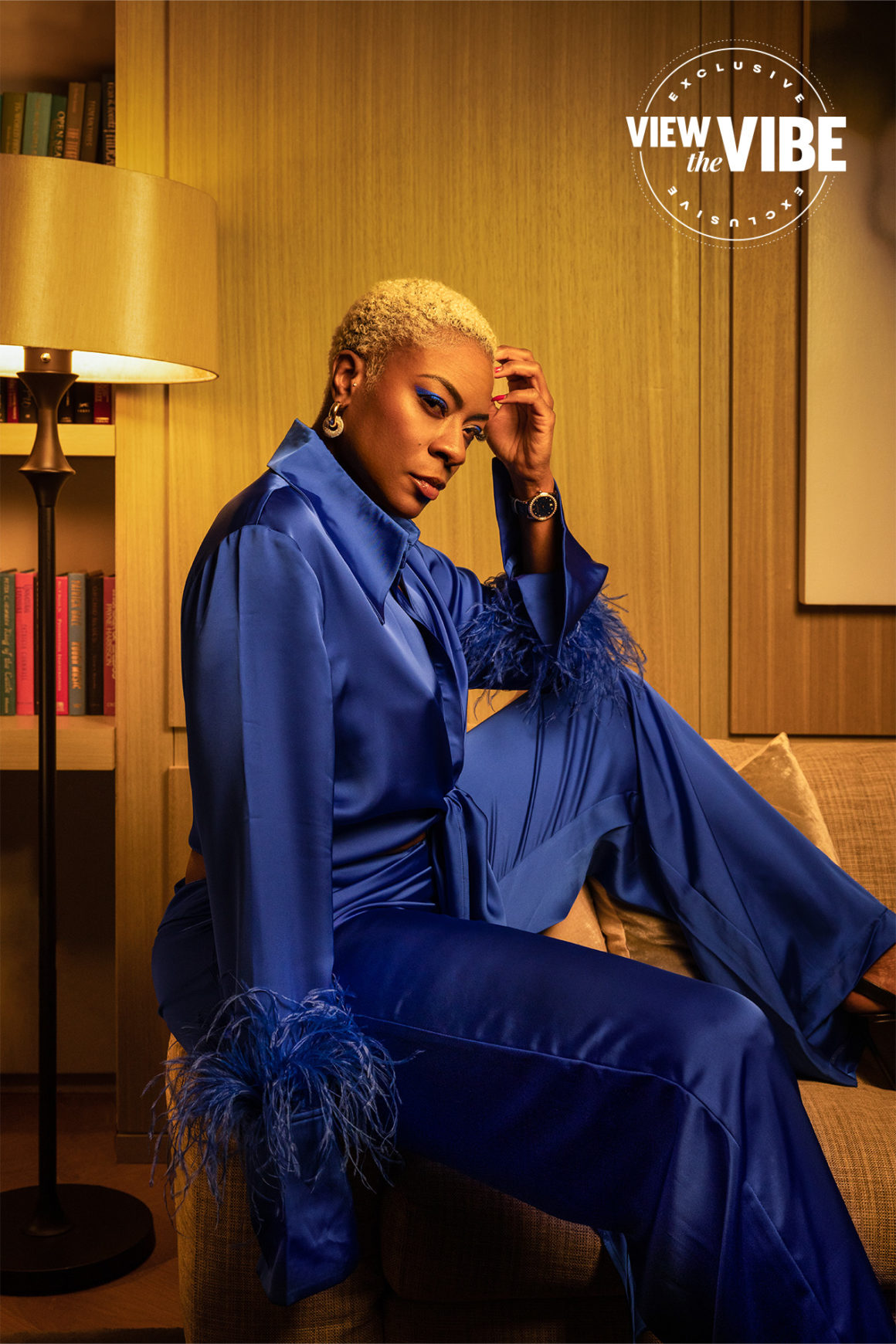
The Anthem Change Everyone’s Talking About
Of course, Black most recently made headlines – and inspired an important conversation in the process – when she tweaked the words to the Canadian national anthem at this year’s NBA All-Star game in February. Black changed the lyrics from “our home and native land” to “our home on native land” as a mark of respect to Canada’s Indigenous groups.
ADVERTISEMENT |
For Jully Black, the possibility of singing the national anthem in the NBA began in 2019, when executives in the basketball world said she may have a chance to perform it at the Raptors game when the team was in the playoffs. “The right people in the right places had the package,” says Black. “I had done the Stanley Cup and some other stuff and they’d heard me perform it half French. They were like, ‘Yup,’ because as cultured, urban and Black the NBA is, they have not had very many Black artists on the Canadian side perform the anthem.”
The opportunity, however, ultimately didn’t pan out. A firm believer in the power and timing of the universe, Black didn’t dwell on this. “Then, it was the pandemic, and who’s even thinking about performing an anthem?” she says…Fair point.
Fast forward to December 2022 and Black received an email from the NBA asking her to perform at the 2023 All-Star Game. “Call it divine timing,” she says. “When I look back, I just wasn’t who I am now. I could appreciate that sometimes you’re not ready when you think you are. When you’re ready, it happens. What’s for you will never lose you. It’ll never miss you. I may have sang it the same way [in 2019], but my energy — I was coming out of a toxic relationship, I was grieving my mom. I could have pulled it off, but I’m not going through life just trying to pull it off anymore. It’s got to feel good; I need to enjoy the process. Period. Period. Period.”
ADVERTISEMENT |
“I need to be all the way present, all the way there, and need to feel good.”
Jully Black
Any artist knows this is sometimes easier said than done. “I know so many people getting opportunities and then they’re coming home and they’re popping some bottles and smoking weed because they’re just like, ‘Oh, that took so much out of me,’ you know?” says Black. “I don’t want to pacify or numb anything. I need to be all the way present, all the way there, and need to feel good. It doesn’t mean that it can’t be challenging. So, when the email came, it was an immediate ‘Yes.’ Because I knew without a shadow of a doubt that this was a moment for something different.”
That doesn’t mean that Black planned on changing the lyrics from the time she accepted the gig. In fact, she didn’t make the decision until three days before the big game, after careful consideration and conversations with friends from Indigenous communities. And it was indeed a moment for something different. Though not without its critics on the right, the poignant word swap is something still on the lips of changemaking Canadians across the country.
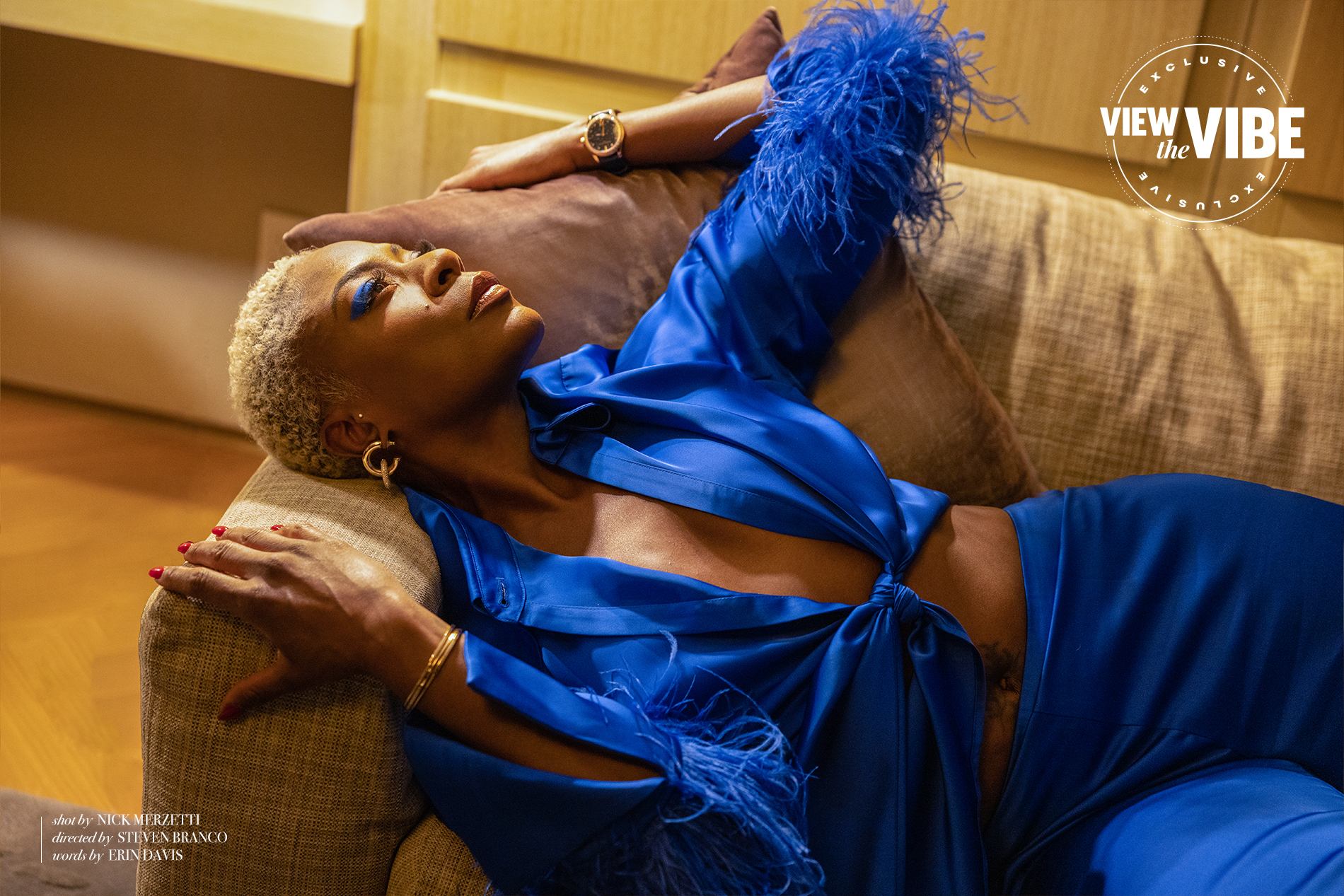
“The Glory Days” and Next Moves
Don’t ask Black how she would like to be remembered. “Thinking about how I’d like to be remembered is egotistical,” says Black when asked about her legacy. “I’m not thinking about how I want to be remembered, because it’s gonna be those who are still here to say how I’m going to be remembered. That’s full ego. It’s funny because I’m a person that might loan somebody money, or watch someone’s kids – giving, to me, is a whole other part of the ministry. My mom taught me this: when you do something for someone and you actually don’t remember doing it, you did it from the right place. People tell me stuff I did, and I promise you, I don’t even remember.”
ADVERTISEMENT |
In terms of advice for her younger self, Black stresses a focus on value over currency. “I’d tell her to realise the value of things,” says Black. “A lot of the biggest moments of my career that propelled me to certain spaces had no money attached to it – none. Nas; no money attached to it. The Black Eyed Peas tour; no money attached to it. OVO; no money attached to it. I could keep going. There was no money attached, only value.”
“There was no money attached, only value.”
Jully Black
Black also stresses the importance of rest. “My mom told me this as a kid: ‘The race is not for the swift, but for those who endure,’” says Black. “It’s about endurance. It’s no different from working out. That’s why I work on my fitness. It’s so aligned with my music career because it’s a muscle, you build it. There’s times where you need to rest. You can work out actively and see no changes. Because you can actually gain weight from overtraining. Stay in your lane, don’t overtrain. And at the end of the day, it’ll get better later, honey; I’m in the glory days of my life.”
So, what’s next for Black? A little much-deserved self-care, she says. “There are quite a few people who are focused on outside validation,” says Black. “They don’t realise that you can actually monetize your wellness. If you’re well and have a healthy mind, you are ready and prepared and available. You put yourself in a position to be affluent and attract.”
ADVERTISEMENT |
Practising this mindset can lead to a point where you’re really thriving in life, says Black. “You only get one life,” she says. “And, when you start to break it down, you get a measure of breath. One day, the time is going to come when you get just one more. Because I sat at my mom’s bedside, I get it. I had a front row seat to that door. And instead of having it make me get bitter, it made me get so much better at appreciating life and people and time. Time. Is. Limited.”
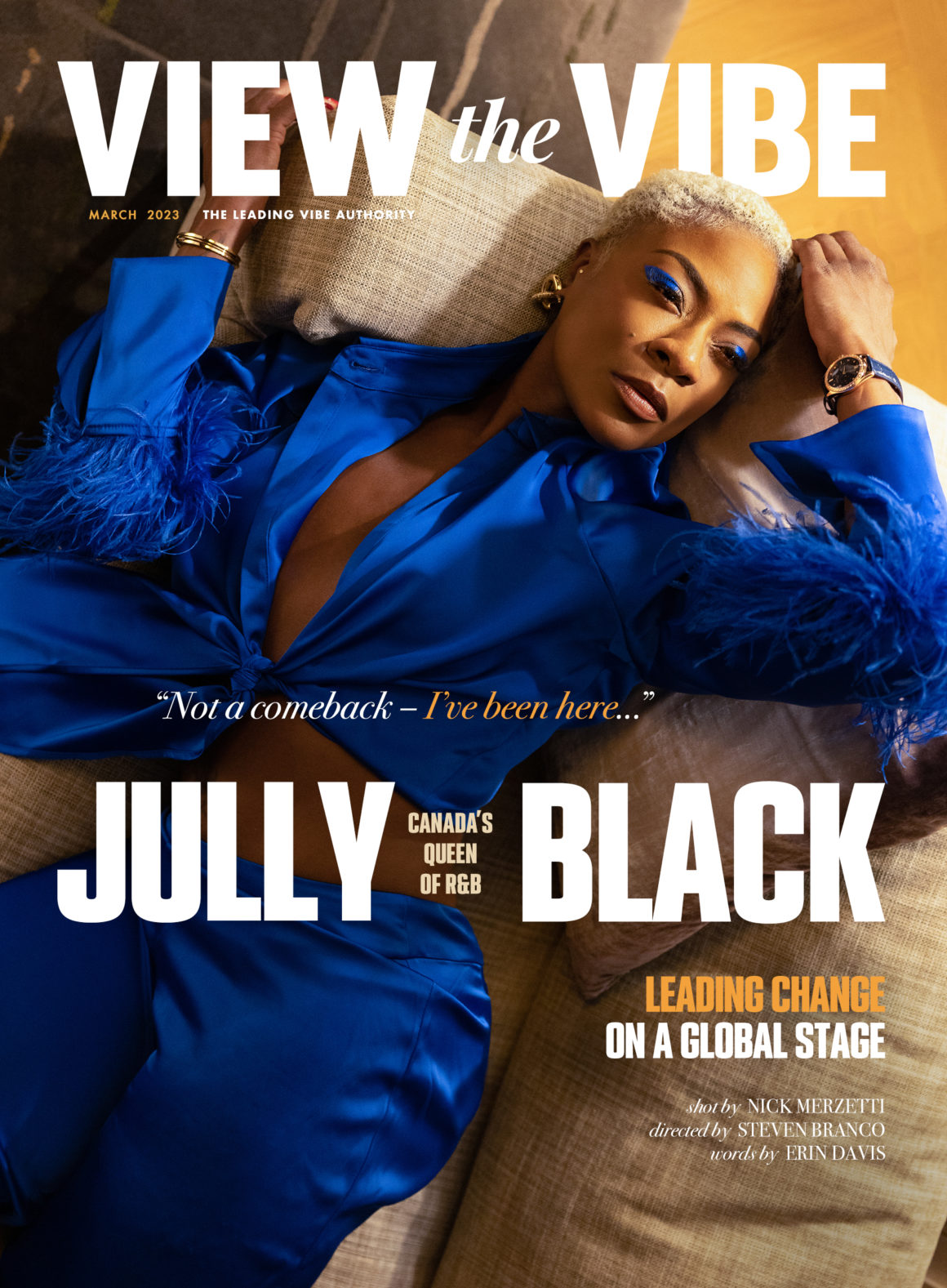
Credits
Shot by: Nick Merzetti; Fashion/Art/Editorial Direction and Production by: Steven Branco; HMUA by: Angela Lee /Judy Inc. and Deborah Guthrie Beauty Studio; Production/Styling Assistants: Izzy Nastic, Dina Jarrar and Chantelle Hinds-McPherson; Wardrobe Assistant: Mursal Rahman; Words by Erin Davis. Location: Four Season Toronto hotel. A Stamina Group Production. Special thank you to Roy Perreault, the Four Seasons Toronto hotel (and Vincent Ko) and the Halo & Co. teams for their assistance. Lauren Adey, Adrienne Reynolds and the Nordstrom Canada teams for their assistance; along with the Citizen Watch Group Canada, Pandora (and Jane Gil PR), Lesley Hampton, SMYTHE, and FUMI teams (and Barbara Nkansah), for their wardrobe assistance. It takes a village, and it couldn’t have been done without all of their support.




